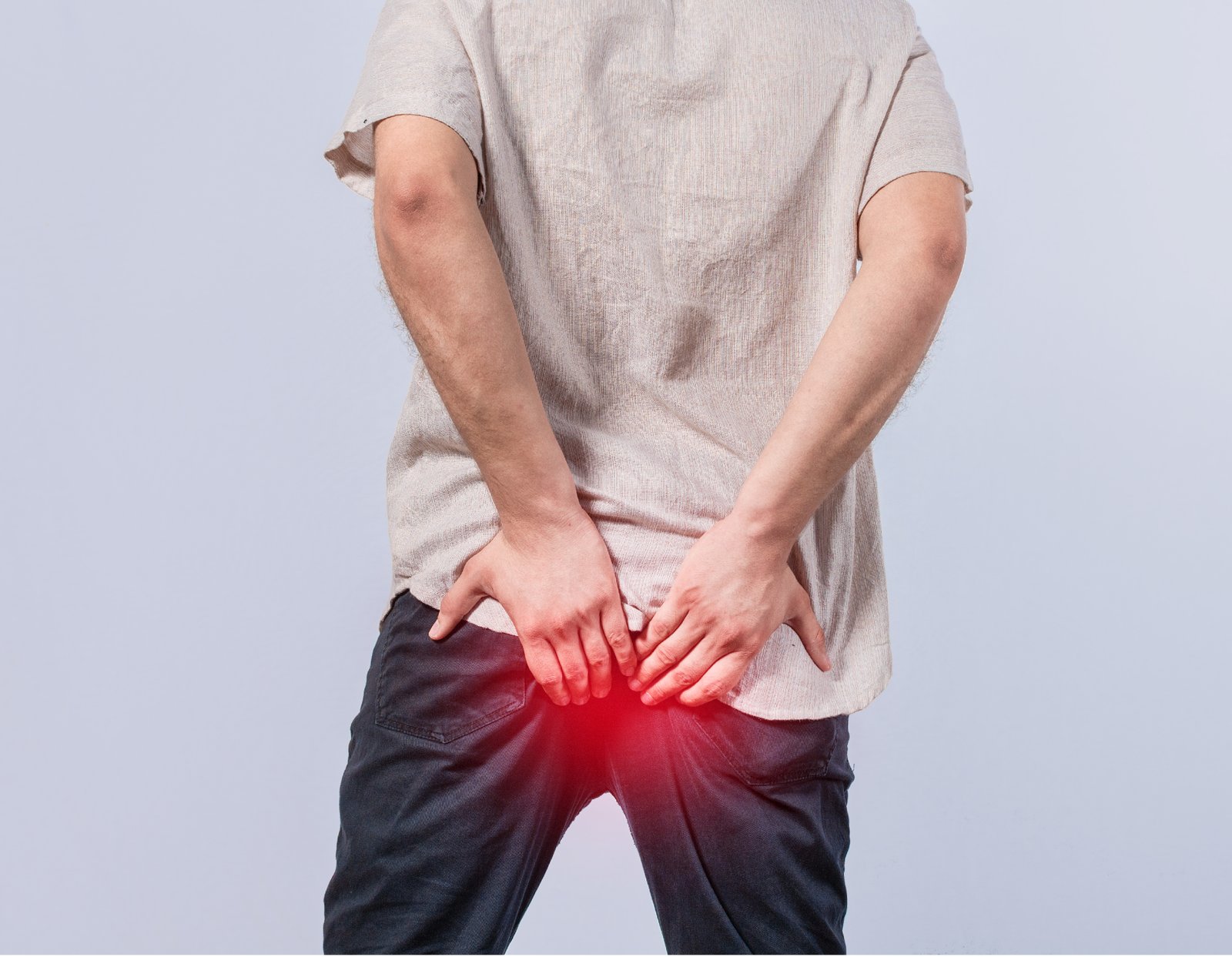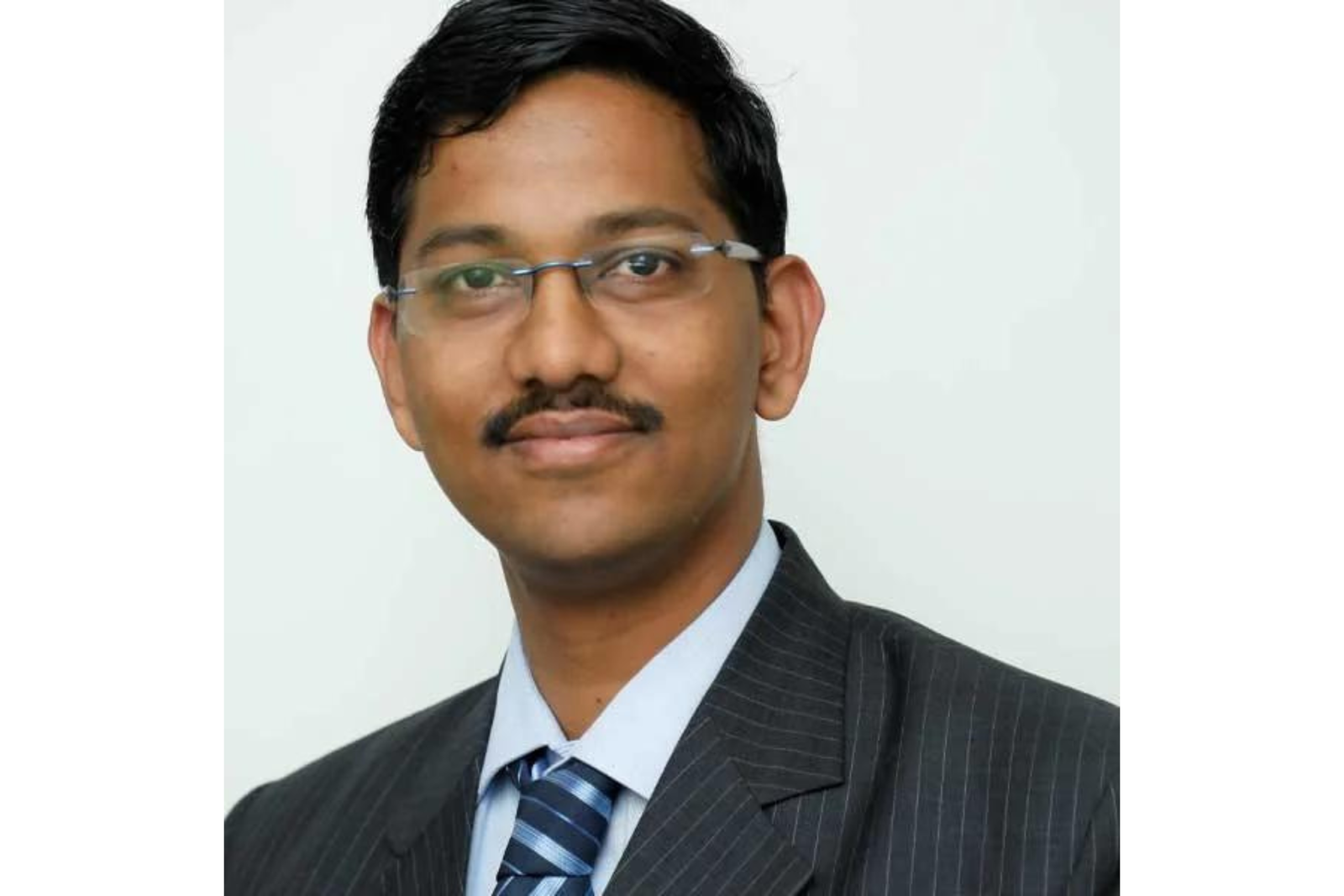

Get Specialized Pilonidal Sinus Treatment
With
Dr. Shrikant Kurhade
Are you experiencing pilonidal sinus pain? Dr. Shrikant Kurhade offers specialised care that includes modern choices such as pilonidal sinus surgery and laser treatments. Dr. Kurhade guarantees excellent relief suited to your needs with a devoted team of competent professionals. Trust our all-encompassing management strategy, which prioritises your well-being and comfort above all else. With our competent treatment, you can regain your peace of mind and comfort.

What is Pilonidal Sinus?
A pilonidal sinus is an inflammatory condition that can be recognized by the formation of a sinuous tract (a winding tunnel) in the sacrococcygeal (tailbone) area. This condition causes significant discomfort and pilonidal sinus surgery is almost always required.
Activities that cause friction, like sitting, can force the hair growing in the area to burrow back under the skin. The body considers this hair foreign and launches an immune response against it. Ingrown hair can trigger this response from the body and a pocket of pus forms around the area if it gets infected.
How many Types of Pilonidal Sinus?
While a pilonidal sinus classically occurs in the intergluteal region, it can rarely occur at other sites which include:
- Between fingers and toes
- Umbilical region
- Penis and perineum area
- Breast, usually the mammary cleft
- Face and neck
Hair penetration
The formation of pilonidal sinuses can be triggered by loose hairs piercing the skin at the buttock cleft.
Friction and pressure
Sinus tract development may result from persistent friction and pressure in the sacrococcygeal region.
Congenital factors
An increased risk of pilonidal sinus may result from a genetic predisposition.
Obesity
Due to increased pressure and sweat accumulation, being overweight might cause the development of a pilonidal sinus.
The forms that a pilonidal sinus can present as are:
- Pilonidal sinus acute: This is the most prevalent kind, and it starts with abrupt symptoms including pain, redness, swelling, and maybe pus draining from the sinus hole. It occurs as a result of a sinus infection.
- Chronic Pilonidal Sinuses: This type progresses gradually and exhibits intervals of minor symptoms followed by discomfort and discharge. Treatment for chronic pilonidal sinuses is more difficult since they may have several sinus branching pathways.
- A pilentinoid cyst: This is the result of an infection and pus-filled pilonidal sinus, which forms a sore, swollen bump close to the tailbone. Common symptoms include fever, redness, and increasing pain
- Pilonidal Sinus Secondary: If some remnants of the tract persist after the surgical excision of a pilonidal sinus, a secondary sinus may form. A thorough surgical excision during the first procedure is extremely important.
- Pre-sacral pilonidal sinus: Rarely, a pilonidal sinus may form nearer the anus and lower in the natal cleft. Because of its position, it may be more difficult to diagnose and treat.
What are the benefits of opting for Pilonidal Sinus Surgery?
Once the recovery process begins, you can eventually return to your normal day-to-day business. With supervision and regular monitoring of your health. We at KKCare guide you through every step of the way, after post-op recovery after pilonidal sinus surgery.
The options for pilonidal sinus treatment include:
- Conservative Remedy: If you get diagnosed early and aren’t experiencing severe pain, or signs of inflammation, your doctor might prescribe a broad-spectrum antibiotic. It treats a wide range of bacteria.
- Phenol Injections: The doctor will first give you a local anaesthetic, then inject phenol inside the cyst which acts as an antiseptic. This procedure usually calls for repetitions and also has a high recurrence rate. It is not recommended for most cases.
- Surgery: If you have a recurring pilonidal sinus infection or more than one sinus tract, your doctor will recommend a pilonidal sinus surgery. They will begin by injecting a local anesthetic, then the surgeon will open the lesions and get rid of all the pus. The wounds are then stitched close.
Patients seeking effective Pilonidal Sinus Surgery in Pimpri Chinchwad can consult KKCare Clinic for modern treatment options and compassionate care.
Pilonidal sinuses require prompt medical attention. Early diagnosis and appropriate treatment, including conservative management or surgical intervention- go a long way to prevent recurrence.

Common Signs and Symptoms of Pilonidal Sinus
You may not notice any symptoms at first other than a dimple-like imprint on your skin. But if it gets infected, it develops into a cyst (a sac filled with fluid) or an abscess (inflamed tissue that stores pus).
The signs of an infected pilonidal sinus include:
- Pain when sitting or standing
- Swelling of the cyst
- Reddened skin around the area
- Moderate to high fever
- Pus or blood draining from the abscess
- Strong, foul odour
- Hair protruding from the lesion
Traditionally, sinus tracts and afflicted tissue are removed during surgery. This process aids in the removal of the source of pain and discomfort, facilitating faster healing and lowering the likelihood of recurrence. Dr. Shrikant Kurhade, a highly qualified and experienced robotic surgeon in Pune, ensures precise procedures for effective and long-lasting effects.
Laser technology has transformed the treatment of pilonidal sinus. This minimally invasive technique removes sinus tracts and promotes tissue repair by using concentrated laser radiation. Pilonidal sinus laser treatment in Pune is well-known for its accuracy, low discomfort, and speedy recovery. Patients frequently report less scarring and a lower risk of infection, making it an increasingly popular option.
Individuals suffering from pilonidal sinus can benefit from these cutting-edge therapies delivered by skilled medical specialists. These approaches not only relieve symptoms but also improve patients’ general quality of life, allowing them to return to their usual activities sooner.
What Makes Us Better?
What Makes Us Better?
Our Clinic
- Specializes in robotic surgeries with skilled surgeons.
- Utilizes cutting-edge robotic systems for precision.
- Operates on weekends for patient convenience.
- Offers a range of minimally invasive robotic procedures.
- Known for clear pricing and honest recommendations.
- Strong reputation for excellent outcomes and satisfaction.
- Dedicated and responsive patient care team.
Others
- The level of expertise varies among individuals.
- Rely on conventional surgical tools, which may have limitations in precision.
- Operates primarily on weekdays.
- May focus on traditional surgical methods with limited minimally invasive options.
- Pricing and advice may not be as transparent.
- Responsiveness of patient care teams may vary.
Our Clinic
- Specializes in robotic surgeries with skilled surgeons.
- Utilizes cutting-edge robotic systems for precision.
- Operates on weekends for patient convenience.
- Offers a range of minimally invasive robotic procedures.
- Known for clear pricing and honest recommendations.
- Strong reputation for excellent outcomes and satisfaction.
- Dedicated and responsive patient care team.
Others
- The level of expertise varies among individuals.
- Rely on conventional surgical tools, which may have limitations in precision.
- Operates primarily on weekdays.
- May focus on traditional surgical methods with limited minimally invasive options.
- Pricing and advice may not be as transparent.
- Responsiveness of patient care teams may vary.
What Makes Us Better?
Our Clinic
- Specializes in robotic surgeries with skilled surgeons.
- Utilizes cutting-edge robotic systems for precision.
- Offers a range of minimally invasive robotic procedures.
- Known for clear pricing and honest recommendations.
- Dedicated and responsive patient care team.
Others
- The level of expertise varies among individuals.
- Rely on conventional surgical tools, which may have limitations in precision.
- May focus on traditional surgical methods with limited minimally invasive options.
- Pricing and advice may not be as transparent.
- Responsiveness of patient care teams may vary.

Qualified Doctors
Why Choose KK Care Clinic for Pilonidal Sinus Surgery?
After a thorough examination, our specialists provide the most precise diagnosis. We recommend treatment programs that work best for you. These cutting-edge pilonidal sinus surgery treatments are carried out by our highly qualified team under the direction of Dr. Shrikant Kurhade, a GI laparoscopic surgeon, to guarantee the best results.
Contact KKCare Hospital to schedule a consultation and learn about pilonidal sinus treatment options from the specialists in Pune. You should always do your own research in addition to expert opinion to make the right choice for your health.
Our Doctors
Our top rated doctors

Dr. Kayla Wood
General Dentist

Dr. Lara Poole
Dermatologist

Dr. Zac Hary
General Surgeon

Dr. Jax Smith
Gynecologist

Dr. Kayla Wood
General Dentist

Dr. Lara Poole
Dermatologist

Dr. Zac Hary
General Surgeon

Dr. Jax Smith
Gynecologist
Our Doctors
Our top rated doctors

Dr. Kayla Wood
General Dentist

Dr. Lara Poole
Dermatologist

Dr. Zac Hary
General Surgeon

Dr. Jax Smith
Gynecologist

Dr. Kayla Wood
General Dentist

Dr. Lara Poole
Dermatologist

Dr. Zac Hary
General Surgeon

Dr. Jax Smith
Gynecologist
Testimonials
What peope says about us

Kunal Ambekar

Tukaram Rane
Testimonials
What people says about us

Sonali Gabhale

Rohit Bhosale

Harshal Walunj
Get Specialized Pilonidal Sinus Treatment
with Dr. Shrikant Kurhade
Are you experiencing pilonidal sinus pain? Dr. Shrikant Kurhade offers specialised care that includes modern choices such as pilonidal sinus surgery and laser treatments. Dr. Kurhade guarantees excellent relief suited to your needs with a devoted team of competent professionals. Trust our all-encompassing management strategy, which prioritises your well-being and comfort above all else. With our competent treatment, you can regain your peace of mind and comfort.

What is Pilonidal Sinus?
A pilonidal sinus is an inflammatory condition that can be recognized by the formation of a sinuous tract (a winding tunnel) in the sacrococcygeal (tailbone) area. This condition causes significant discomfort and pilonidal sinus surgery is almost always required.
Activities that cause friction, like sitting, can force the hair growing in the area to burrow back under the skin. The body considers this hair foreign and launches an immune response against it. Ingrown hair can trigger this response from the body and a pocket of pus forms around the area if it gets infected.
How many Types of Pilonidal Sinus?
While a pilonidal sinus classically occurs in the intergluteal region, it can rarely occur at other sites which include:
- Between fingers and toes
- Umbilical region
- Penis and perineum area
- Breast, usually the mammary cleft
- Face and neck
The forms that a pilonidal sinus can present are:
- Pilonidal sinus acute: This is the most prevalent kind, and it starts with abrupt symptoms including pain, redness, swelling, and maybe pus draining from the sinus hole. It occurs as a result of a sinus infection.
- Chronic Pilonidal Sinuses: This type progresses gradually and exhibits intervals of minor symptoms followed by discomfort and discharge. Treatment for chronic pilonidal sinuses is more difficult since they may have several sinus branching pathways.
- A pilentinoid cyst: This is the result of an infection and pus-filled pilonidal sinus, which forms a sore, swollen bump close to the tailbone. Common symptoms include fever, redness, and increasing pain
- Pilonidal Sinus Secondary: If some remnants of the tract persist after the surgical excision of a pilonidal sinus, a secondary sinus may form. A thorough surgical excision during the first procedure is extremely important.
- Pre-sacral pilonidal sinus: Rarely, a pilonidal sinus may form nearer the anus and lower in the natal cleft. Because of its position, it may be more difficult to diagnose and treat.
Hair penetration
The formation of pilonidal sinuses can be triggered by loose hairs piercing the skin at the buttock cleft.
Friction and pressure
Sinus tract development may result from persistent friction and pressure in the sacrococcygeal region.
Congenital factors
An increased risk of pilonidal sinus may result from a genetic predisposition.
Obesity
Due to increased pressure and sweat accumulation, being overweight might cause the development of a pilonidal sinus.
By either physically excising the sinus tracts or using laser technology to aid in healing and stop recurrence, pilonidal sinus laser treatment in Pune provides a focused approach to treating the root cause.
What are the benefits of opting for Pilonidal Sinus Surgery?
Once the recovery process begins, you can eventually return to your normal day-to-day business. With supervision and regular monitoring of your health. We at KKCare guide you through every step of the way, after post-op recovery after pilonidal sinus surgery.
The options for pilonidal sinus treatment include:
- Conservative Remedy: If you get diagnosed early and aren’t experiencing severe pain or signs of inflammation, your doctor might prescribe a broad-spectrum antibiotic. It treats a wide range of bacteria.
- Phenol Injections: The doctor will first give you a local anesthetic, then inject phenol inside the cyst which acts as an antiseptic. This procedure usually calls for repetitions and also has a high recurrence rate. It is not recommended for most cases.
- Surgery: If you have a recurring pilonidal sinus infection or more than one sinus tract, your doctor will recommend a pilonidal sinus surgery. They will begin by injecting a local anesthetic, then the surgeon will open the lesions and get rid of all the pus. The wounds are then stitched close.
Pilonidal sinuses require prompt medical attention. Early diagnosis and appropriate treatment, including conservative management or surgical intervention- go a long way to prevent recurrence.

Common Signs and Symptoms of Pilonidal Sinus
You may not notice any symptoms at first other than a dimple-like imprint in your skin. But if it gets infected, it develops into a cyst (a sac filled with fluid) or an abscess (inflamed tissue that stores pus).
The signs of an infected pilonidal sinus include:
- Pain when sitting or standing
- Swelling of the cyst
- Reddened skin around the area
- Moderate to high fever
- Pus or blood draining from the abscess
- Strong, foul odour
- Hair protruding from the lesion
Traditionally, sinus tracts and afflicted tissue are removed during surgery. This process aids in the removal of the source of pain and discomfort, facilitating faster healing and lowering the likelihood of recurrence. Dr. Shrikant Kurhade, a highly qualified and experienced robotic surgeon in Pune, ensures precise procedures for effective and long-lasting effects.
Laser technology has transformed the treatment of pilonidal sinus. This minimally invasive technique removes sinus tracts and promotes tissue repair by using concentrated laser radiation. Pilonidal sinus laser treatment in Pune is well-known for its accuracy, low discomfort, and speedy recovery. Patients frequently report less scarring and a lower risk of infection, making it an increasingly popular option.
Individuals suffering from pilonidal sinus can benefit from these cutting-edge therapies delivered by skilled medical specialists. These approaches not only relieve symptoms but also improve patients’ general quality of life, allowing them to return to their usual activities sooner.
What Makes Us Better?
Our Clinic
- Specializes in robotic surgeries with skilled surgeons.
- Utilizes cutting-edge robotic systems for precision.
- Offers a range of minimally invasive robotic procedures.
- Known for clear pricing and honest recommendations.
- Dedicated and responsive patient care team.
Others
- The level of expertise varies among individuals.
- Rely on conventional surgical tools, which may have limitations in precision.
- May focus on traditional surgical methods with limited minimally invasive options.
- Pricing and advice may not be as transparent.
- Responsiveness of patient care teams may vary.

Qualified Doctors
Why Choose KK Care Clinic for Pilonidal Sinus Surgery?
After a thorough examination, our specialists provide the most precise diagnosis. We recommend treatment programs that work best for you. These cutting-edge pilonidal sinus surgery treatments are carried out by our highly qualified team under the direction of Dr. Shrikant Kurhade, a GI laparoscopic surgeon, to guarantee the best results.
Contact KKCare Hospital to schedule a consultation and learn about pilonidal sinus treatment options from the specialists in Pune. You should always do your own research in addition to expert opinion to make the right choice for your health.
Testimonials
What peope says about us

Kunal Ambekar

Tukaram Rane
Testimonials
What people says about us

Sonali Gabhale

Rohit Bhosale

